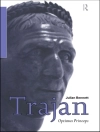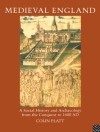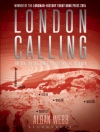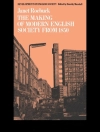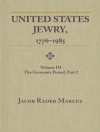Epics of Disaffection is an exploration of the epic imagination. It brings a historian’s sensibility and expertise to bear on four eccentric works of literary genius, each of a different genre: The Lord of the Rings, War and Peace, and two books by the historian E. P. Thompson, The Making of the English Working Class and The Sykaos Papers. Each underwent a metamorphosis in the course of composition, emerging as an account of a historical crisis – actual or fictional – set in a broader temporal context. Each acquired an epic theme, tone, and structure, becoming a narrative that contemplates human experience in the light not just of history but of eternity. The book links this thematic and formal convergence to the authors’ personal encounter with history and politics, which in each case included military combat. The books are dissenting histories, and epics of disaffection, because the epic transformation was triggered in each case by a prophetic urge arising from the author’s profound alienation from modernity and sense of being at the mercy of history.
สารบัญ
1. Introduction: Epics of Disaffection, Prophets of Alienation (1)
The epic vision (7)
Teleology and Contingency (14)
2. The Lord of the Rings: A Journey in Space
and Time (18)
Tolkien’s legendarium (22)
A journey in time (31)
War and the shaping of Middle-earth (36)
‘Death and immortality’ (44)
3. Tolkien: History, Myth, Prophecy (54)
Tolkien’s anti-modernism (55)
‘Out of due time’: Tolkien and William Morris (61)
History, myth and allegory (67)
Intuition and inspiration (73)
Fantasy and prophecy (79)
Tolkien’s romance (85)
Tolkien’s ‘novel’ (91)
A frameless picture, a tuneless song (98)
4. War and Peace: Tolstoy’s ‘Novel’ (103)
Politics and romance (108)
Realism and romance: Tolstoy’s characters (115)
Realism and romance: Tolstoy’s subversion of sentimentality (119)
Sentiment and satire (126)
Tolstoy the trickster (132)
Epic scale (138)
5. ‘Not a Novel’: Time and Space in Tolstoy’s Epic (143)
Epic time (145)
Space, romance and politics: Tolstoy’s epic zone (150)
Two quests, three heroes (159)
Fairyland (163)
Tolstoy the conjuror: realism and the numinous (171)
Tolstoy’s epic (182)
6. An Unfinished Epic? The Making of the English Working Class (190)
A libertarian communist (193)
Thompson’s history: the epic framework (202)
Paradise Lost: Thompson’s Golden Age (207)
Epic scale (212)
Thompson’s argument against the historians (217)
‘Secret History’ (223)
Epic transformation (229)
Heroes without gods (231)
7. The End of History: The Sykaos Papers (242)
Lear on the heath (245)
Swiftian satire (255)
Satirical novel (264)
Idyll, epic, apocalypse (271)
The end of human history (281)
8. Conclusion: Prophecy, Myth and the Numinous (285)
Prophecy (285)
Locating the numinous in space and time (292)
Positioning the narrative (295)
Prophecy and history (301)


